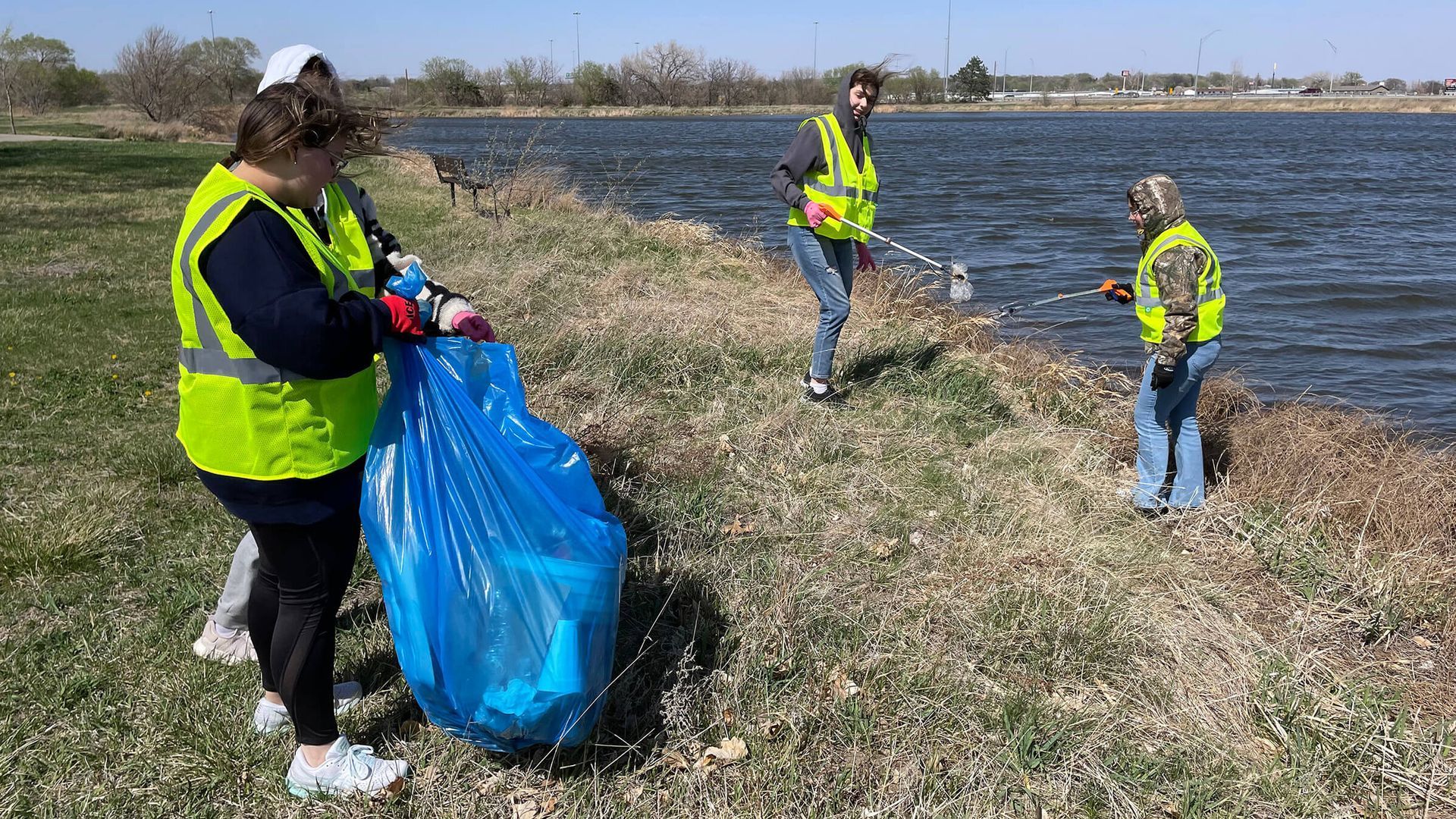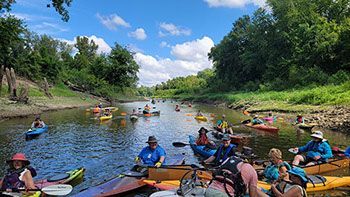About the missouri stream team


Missouri Stream Team is a working partnership of citizens who are concerned about Missouri Streams. The Stream Team Program provides an opportunity for all citizens to get involved in river conservation. Attendees of the first Rivers and Streams Conference in 1988 set the following Stream Team goals:
Education: Learning all you can about Missouri's 110,000 miles of flowing water is as easy as it is fun. Stream Team provides training and information to better understand our stream systems and the problems and opportunities they face.
Stewardship: Hands-on projects such as litter control, streambank stabilization, streamside tree planting, water quality monitoring, and storm drain stenciling, are all possibilities. Stream Team can help you plan a project or match you with an agency or organization effort.
Advocacy: Speaking on behalf of your adopted stream when development or harmful activities tamper with them is not as difficult as you might think. Those who have gained firsthand knowledge of problems, solutions, and needs are best equipped to speak out on behalf of Missouri's stream resources. Writing letters, attending meetings, and contacting your elected officials can all be ways to get involved.
What is a Stream Team?
Stream Team is a group of people who care about Missouri streams. It is citizen-based and biologists provide training and expertise at no charge to help with stream projects and information.
How do I become a Stream Team?
Fill out the registration form, and you'll be assigned a Team number and begin receiving information.
What types of people or groups are involved?
Individuals of any age, families, groups, or organizations of any type can form a Stream Team.
What types of projects can I get involved in?
Litter pickups, storm drain stenciling, water quality monitoring, habitat improvement, advocacy, greenways, or educational projects are all possibilities.
We provide training in several of these areas and have staff to help you get started. We also provide materials at no charge for many Stream Team projects.
Can I choose a stream to adopt?
Yes, you may work on any stream you like. You can adopt more than one stream or change your adopted stream at any time. It's not a problem for more than one Team to adopt the same stream; there is usually plenty of work for everyone!
We encourage Teams to choose a small section of a stream that is close to home to begin their projects.
Do Stream Teams have permission to trespass for their activities?
NO, Stream Team volunteers and staff are not permitted to trespass in the name of Stream Team work. All program staff and volunteer citizens must abide by State of Missouri trespass laws.
How do I get in touch with someone if I have questions?
You can email Stream Team staff or call 800-781-1989 (voicemail). We check our messages often and will respond as soon as possible. You can reach us at (573) 751-4115 ext. 3591 if you need immediate assistance.
How do I get the word out about events my Team has planned?
You can alert other Stream Teams by adding your event to the online Calendar of Events. You can also contact any of our staff by phone or email with a request to to send an email advertisement to Missouri Stream Team volunteers, or include your event in the Channels newsletter, Calendar of Events or to run a special feature article (allow several weeks' notice for newsletter items; we are ready for publication approximately one month before the issue hits mailboxes).
Within your community, contact local newspapers, radio and television stations for free community advertising. You can also prepare a press release, which contains contact information as well as the four W's (who, what, when, where) and a brief write-up about your event. Mail, fax, or email your local media outlets and ask for coverage. Make follow-up calls to the same outlets to see if they have questions and ask if they can provide coverage for your event.
Finally, posters and flyers in locations frequented by like-minded citizens are also an easy and free way to spread awareness. You may also want to establish an email list or social media group of interested citizens in your community and ask them to forward the message on!
